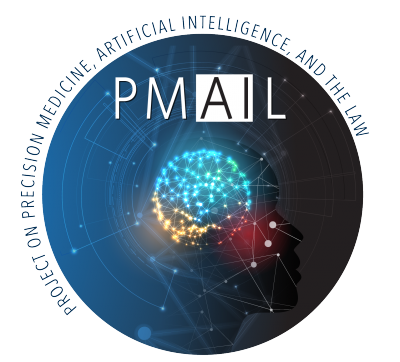 Back to Case Studies
Back to Case Studies
Location
Cambridge, MA
Machine-learning and artificial intelligence, combined with large quantities of health data such as genomic sequences, clinical records, and diagnostic tests have enabled health technology to outstrip human understanding. These tools, called “black-box medicine,” are often based on algorithms too complex for the healthcare community to understand explicitly. At the same time, “black-box medicine” and other health artificial intelligence (AI) programs offer enormous potential to predict and guide healthcare, ensuring better patient outcomes.
Black-box precision medicine is an exciting new frontier in health care diagnostics, harnessing the power of big data.
The advent of “black-box medicine” and health AI, however, has led to the emergence of a novel challenge: the question of how to regulate the field, and how tools should be developed and implemented to ensure better healthcare outcomes while also taking into account values that protect public purpose, such as safety, transparency, and inclusion.

Black-box precision medicine is an exciting new frontier in health care diagnostics, harnessing the power of big data. In black-box medicine, machine-learning algorithms and artificial intelligence examine newly available troves of health data, including genomic sequences, patient clinical care records, and the results of diagnostic tests to make predictions and recommendations about care. An algorithm may be “black-box” either because it is based on unknowable machine-learning techniques or because the relationships it draws are too complex for explicit understanding.
These algorithms, and artificial intelligence techniques more broadly, represent a point where health technology may outstrip human understanding. The medical community is increasingly using very complicated algorithms and cutting edge artificial intelligence to predict and guide health care, such as recommending a certain dose of insulin to a diabetic patient. Some of these new techniques support innovation and push the boundaries of medicine, but others may be based on errors and lead to suboptimal care. New legal and regulatory tools are needed to understand how this field should be developed, regulated, and implemented in order to harness the tremendous possibilities of transforming health care for the better while reflecting the difference between these tools and previous health care diagnostics. PMAIL aims to tackle exactly those issues and help develop those tools.
PMAIL will provide a comparative analysis of the law and ethics of black-box precision medicine, explaining the shortcomings of the current innovation policy landscape in Europe and the US, and providing a comprehensive examination of various policy options to better harness the potential of black-box medicine. It will be a major initiative, spanning five years of study.
PMAIL seeks to ensure that the boom of AI in healthcare is implemented in ethical ways; articulate a responsible regulatory regime for these algorithms; ensure there is inclusion in data sets to ensure that patients historically disadvantaged are well served by AI outcomes; and considers what informed consent looks like when using AI to determine care.
PMAIL has hosted major events including a collaboration on AI and disabilities (with the Harvard Safra Center, Harvard Project on Disability), which brings together legal scholars, ethicists, and others, and will host an international regulators’ roundtable to discuss challenges of regulating AI in healthcare.
PMAIL is a thought leader with publications in JAMA, Nature, and Science raising ethical and regulatory questions.
It will continue to host further creative events, convening groups of people who otherwise would not come together; continue to host postdocs and other early career scholars; continue to collaborate with physicians and scientists to be the “lawyer in the room” (e.g., AI in hospital surveillance cameras, smart pill adherence). Moreover, PMAIL will publish a book on the regulation of medical devices (including the regulation of AI and algorithms as a medical device) by a major academic press.